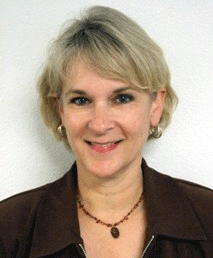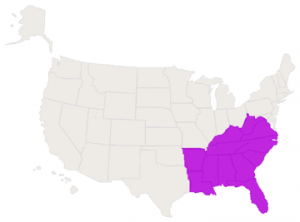by Justin Story, The Daily News, Bowling Green (KY) — originally published December 2, 2010
Only one county has seen more of its court cases require the assistance of a court interpreter than Warren County, according to the person who heads court interpreting services for the state.
Ervin Dimeny, manager of the Administrative Office of the Courts Court Interpreting Services, revealed this fact during remarks made about the service at the Bowling Green Noon Rotary Club’s meeting Wednesday at Bowling Green Country Club.
Dimeny said that about 35,000 cases statewide each year require the services of a language interpreter – about 80 percent of those cases see the use of a Spanish-language interpreter and another 10 percent require a sign language interpreter for the deaf or hard of hearing.
“Warren County is the second-busiest county in the commonwealth, especially for languages other than Spanish,” Dimeny said.
A native of Romania who defected to Hungary in 1989 to escape what was then a repressive Communist regime, Dimeny studied at the Hungarian Baptist Theological Seminary before immigrating to the United States in 1995.
He became a U.S. citizen in 1999 and earned a law degree from the University of Louisville.
Dimeny now oversees a program that provides language interpreters in court proceedings for people who do not speak English as a first language or who are deaf or hard of hearing at no cost to those requiring the service.
“Court interpreter services is a very important aspect of the judicial process,” Dimeny said. “In a lot of other countries, you’d be out of luck if you didn’t speak the language.”
It costs about $1.78 million each year to provide the program, a cost that has risen over the past decade as more immigrants have settled in Kentucky.
“Ten years ago the cost of the service was about ($600,000) or $700,000,” Dimeny said.
The program includes 11 full-time Spanish interpreters, one of whom is based in Bowling Green.
Dimeny said the majority of court interpreters are used for defendants in criminal cases, though the service is also employed for civil, family and other court proceedings.
There are three kinds of court interpreters – simultaneous interpreters who translate speech as it is being spoken, consecutive interpreters who translate during pauses in speech and interpreters who offer a sight translation of court documents.
Keeping up with an increasingly multilingual population has proved to be a challenge due both to state budgetary concerns and ongoing efforts to find enough certified court interpreters to serve the population.
Kentucky is helped, though, by being part of a national consortium that has access to a database of interpreters who can assist those who speak more obscure languages.
A recent murder case in Warren County involved a defendant who spoke a rare Pacific island dialect, and the court interpreter who assisted him was brought into the case from California.
Dimeny said the Bowling Green International Center has been instrumental in helping locate interpreters for court cases in Warren County as well.
The state is looking into additional ways to enable people requiring court interpreters to have access to the service, Dimeny said.
“We’re in the process of equipping courtrooms with video remote interpreter equipment through a grant, and there is a pilot project to provide interpreter services to domestic violence petitioners,” Dimeny said.

 Deborah Williamson, executive officer for the AOC Department of Court Services, retired Feb. 28, 2011. Deb served the Administrative Office of the Courts for two decades in a variety of capacities and most recently oversaw the Divisions of Court Interpreting Services, Judicial Branch Education, and Records and Statistics.
Deborah Williamson, executive officer for the AOC Department of Court Services, retired Feb. 28, 2011. Deb served the Administrative Office of the Courts for two decades in a variety of capacities and most recently oversaw the Divisions of Court Interpreting Services, Judicial Branch Education, and Records and Statistics. 
 Please join us in welcoming the following new NASJE members:
Please join us in welcoming the following new NASJE members:


 Participants in the training, hosted by the Domestic Violence Prevention Coordinating Council, drew cards to find out their victim’s story — a woman with kids or a single person in a troubled relationship. They then followed the story to stations set up around the room that represented various options for victims, such as court, police, family and friends, the clergy, support groups or the funeral home.
Participants in the training, hosted by the Domestic Violence Prevention Coordinating Council, drew cards to find out their victim’s story — a woman with kids or a single person in a troubled relationship. They then followed the story to stations set up around the room that represented various options for victims, such as court, police, family and friends, the clergy, support groups or the funeral home.